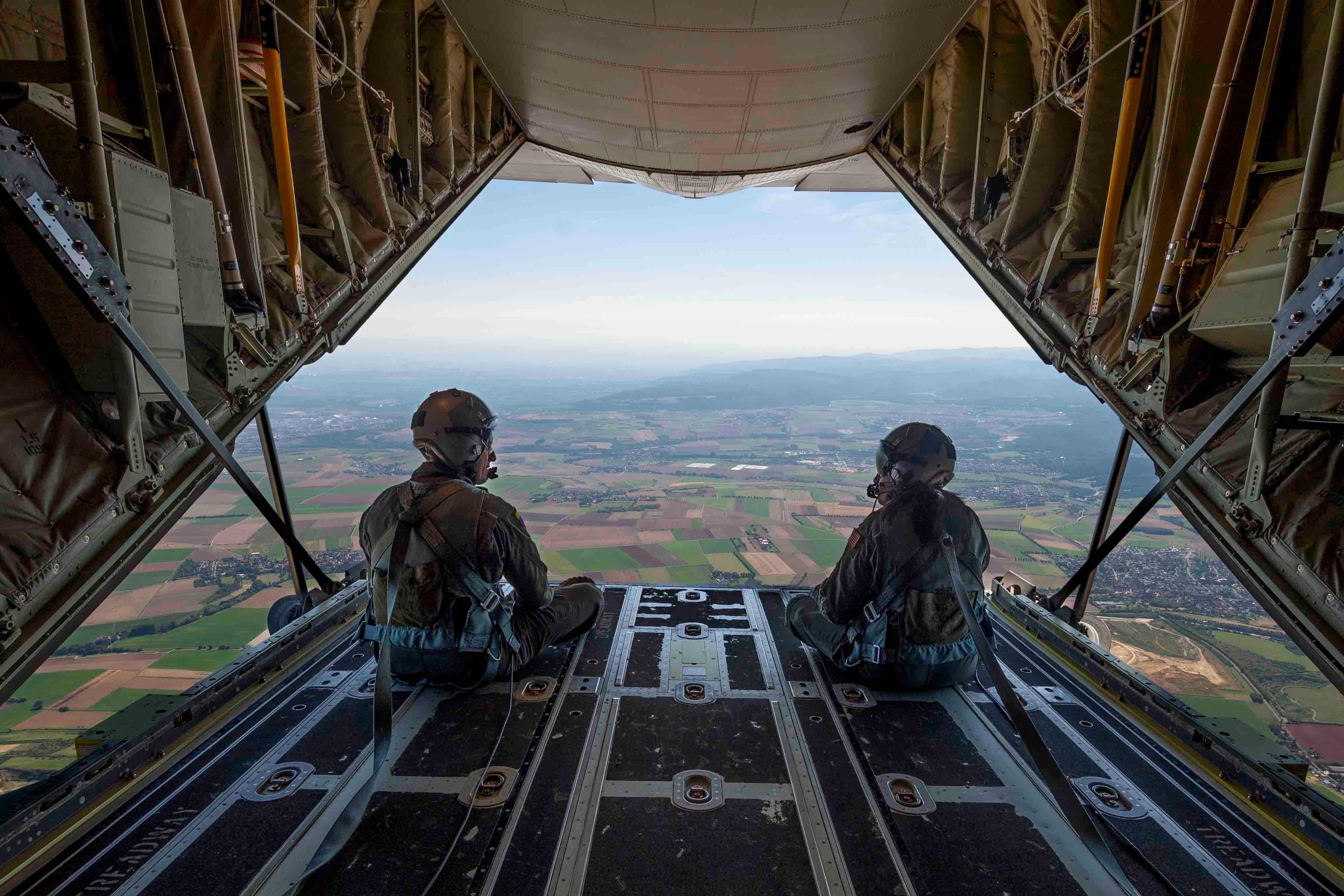The Air Force is tweaking its professional development programs as a new generation of airmen begins to rise through the ranks.
The changes aim to deliver more consistent lessons in leadership and reinforce the service’s standards, while becoming more relevant to the challenges that supervisors now face. They are part of a broader push to foster well-rounded airmen who are as emotionally intelligent as they are technically skilled, for a stronger force on and off the battlefield.
“Over the past several years, our service has been working diligently to meet our national defense needs,” Air Force Chief of Staff Gen. CQ Brown and Chief Master Sergeant of the Air Force JoAnne Bass wrote in a Sept. 18 letter to the force. “Our most significant advantage remains steadfast — a powerful, capable enlisted corps. We must continue to improve upon how we develop these airmen to sustain our competitive advantage.”
The service now envisions enlisted professional development as an academic ladder, from the 100-level boot camp to the 900-level Chief Master Sergeant Leadership Academy. As airmen take on jobs with more responsibility, how they prepare for those roles will evolve as well.
Starting in October, the Air Force will roll out new classes known as “foundations” courses. The informal, on-base classes get enlisted airmen ready to head to the service’s formal professional development programs, like the Airman Leadership School and Noncommissioned Officer Academy.
Those courses will come in at three points in an airman’s career: one aimed at airmen first class before they head to Airman Leadership School; an NCO course aimed at staff sergeants before they go to the NCO Academy; and a senior NCO course aimed at master sergeants before starting at the Senior NCO Academy.
The classes will replace other enlisted seminars with a new set of topics in which leaders should be well-versed, like discussing mental health with their subordinates.
“The development that we give every single one of our leaders, our airmen, our supervisors is huge,” Bass said of foundations courses during an Aug. 30 livestream. “We will make sure that we have relevant content that we are supplying and … empowering you with, so that you can continue growing those around you.”
Some social media users have questioned whether the classes, which are replacing existing on-base seminars, will be anything more than a name change.
To keep airmen sharp between stints at formal leadership schools, the Air Force has also rolled out crash courses in daily management tasks that troops can take before stepping into supervisory roles. Those “job qualification standards” get enlisted airmen up to speed on how to motivate and discipline others, handle budgets and write job reviews.
Each is tailored to progressively higher leadership roles. They start with supervisor training for senior airmen and move on to information for those becoming NCOs in charge, flight chiefs and senior enlisted leaders.
Those lessons are currently optional at each rank, but may become mandatory for senior airmen after they graduate from Airman Leadership School, the service said in May.
The Air Force also plans to launch on-demand professional military education next year so airmen can study at their own pace, away from the classroom. That can benefit airmen as they move throughout their daily work, prepare for promotions or retain what they’ve learned in earlier courses.
“This shift is about the long game and building the force of the future,” the Air Force said in a Sept. 20 release. “We owe every airman deliberate developmental opportunities throughout their careers to grow and become their very best.”
The Air Force’s outlook on higher education for officers is changing, too.
The service announced Sept. 14 it will send more officers to its Alabama-based leadership schools to boost the book smarts airmen need to think critically about the future of war. Larger in-person cohorts will begin with the 2025-2026 academic school year.
Officers are already expected to finish command and staff college once they are promoted to major, and war college once they reach lieutenant colonel, as prerequisites for moving into roles with more responsibility and in joint offices.
Studying in-residence at the Air Command and Staff College, the service’s graduate-level higher education program for airmen, or Air War College, the postgraduate school, is seen as more competitive and more intensive than completing the coursework online.
To choose its in-person students, the Air Force will first select the top one-third of candidates from each career field. Then 60% of those top ACSC applicants will be offered in-residence spots. Thirty-three percent of the top Air War College applicants will get in-residence spots.
Others can still head to schools run by the other military services, or programs at elite schools like Harvard University. But Brown stressed the importance of the service’s own academic offerings to the future fight.
“To ensure deep airpower expertise is available to joint commands, it is essential we send officers with diverse professional backgrounds and experiences, and with the potential to be senior leaders in our Air Force, to our own in-residence programs,” he said in the release.
Rachel Cohen is the editor of Air Force Times. She joined the publication as its senior reporter in March 2021. Her work has appeared in the Washington Post, the Frederick News-Post (Md.), Air and Space Forces Magazine, Inside Defense, Inside Health Policy and elsewhere.





